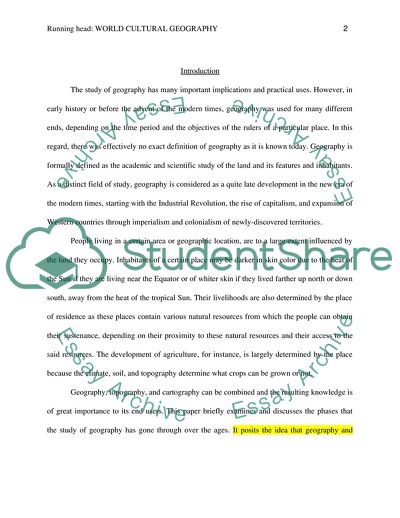Cite this document
(World Cultural Geography Essay Example | Topics and Well Written Essays - 1500 words - 1, n.d.)
World Cultural Geography Essay Example | Topics and Well Written Essays - 1500 words - 1. https://studentshare.org/geography/1811960-1-the-relationship-between-space-and-human-behavior-which-causes-the-other-2-the-functions-of-geography-through-the-ages
World Cultural Geography Essay Example | Topics and Well Written Essays - 1500 words - 1. https://studentshare.org/geography/1811960-1-the-relationship-between-space-and-human-behavior-which-causes-the-other-2-the-functions-of-geography-through-the-ages
(World Cultural Geography Essay Example | Topics and Well Written Essays - 1500 Words - 1)
World Cultural Geography Essay Example | Topics and Well Written Essays - 1500 Words - 1. https://studentshare.org/geography/1811960-1-the-relationship-between-space-and-human-behavior-which-causes-the-other-2-the-functions-of-geography-through-the-ages.
World Cultural Geography Essay Example | Topics and Well Written Essays - 1500 Words - 1. https://studentshare.org/geography/1811960-1-the-relationship-between-space-and-human-behavior-which-causes-the-other-2-the-functions-of-geography-through-the-ages.
“World Cultural Geography Essay Example | Topics and Well Written Essays - 1500 Words - 1”. https://studentshare.org/geography/1811960-1-the-relationship-between-space-and-human-behavior-which-causes-the-other-2-the-functions-of-geography-through-the-ages.


